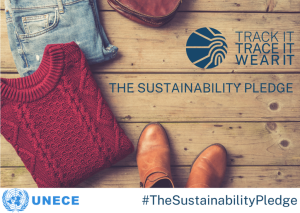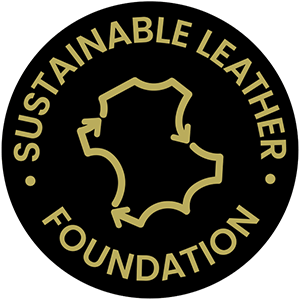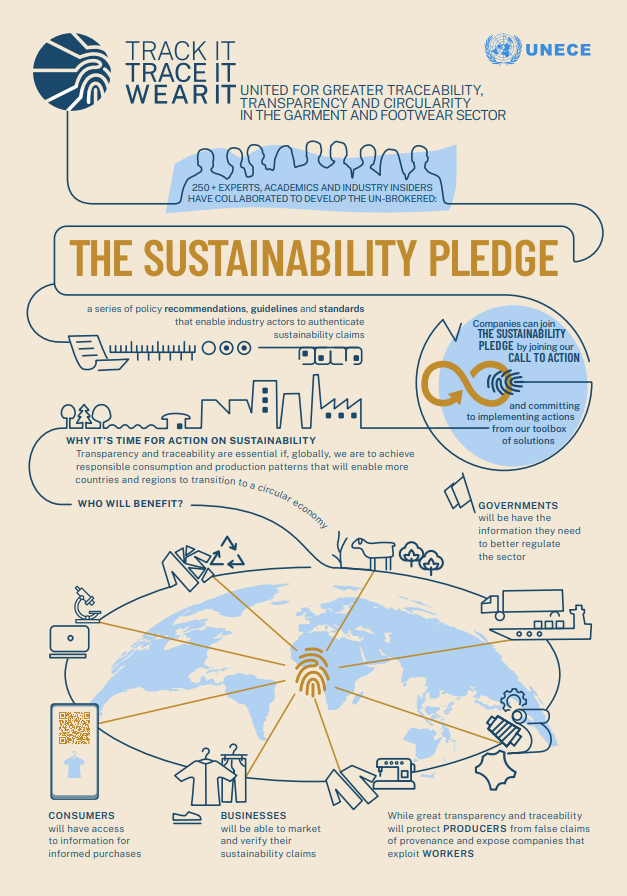United Nations Economic Commission For Europe

Traceability And Transparency For Sustainable Value Chains In The Garment And Footwear Sector
Traceability And Transparency For Sustainable Value Chains In The Garment And Footwear Sector
SLF is proud to support the work of the United Nations Economic Commission for Europe having been involved in this transformative project since it was launched in 2019.
SLF’s Managing Director, Deborah Taylor, is a UN/CEFACT Consultant and has been part of the core project team since April 2020, working with the Secretariat to provide expertise and input on the leather value chain.
The aim of the project was to create a Traceability and Transparency standard for the garment and footwear sector which enables value chains to consider the use of a standardised set of criteria, data and information exchanges to support sustainability claims and good practice.
The initial project was completed at the end of 2022 and resources that have been published include:
- Policy Recommendations and Guidelines (approved during a UN Plenary session held during April 2021)
- Business Requirements Specification for Traceability and Transparency in the Textile and Leather Sector
- Business Process Analysis for Sustainability and Circularity in the Leather Value Chain
Having drafted the Business Process Analysis for the leather value chain, which was peer reviewed by industry experts and associations, SLF adopt this same standardised approach and methodology to our certificate requirements and work towards greater alignment with other industry associations and standard setting bodies to provide a unified way to addressing key sustainability risks and mitigation in our industry.
SLF is proud to support the work of the United Nations Economic Commission for Europe having been involved in this transformative project since it was launched in 2019.
SLF’s Managing Director, Deborah Taylor, is a UN/CEFACT Consultant and has been part of the core project team since April 2020, working with the Secretariat to provide expertise and input on the leather value chain.
The aim of the project was to create a Traceability and Transparency standard for the garment and footwear sector which enables value chains to consider the use of a standardised set of criteria, data and information exchanges to support sustainability claims and good practice.
The initial project was completed at the end of 2022 and resources that have been published include:
- Policy Recommendations and Guidelines (approved during a UN Plenary session held during April 2021)
- Business Requirements Specification for Traceability and Transparency in the Textile and Leather Sector
- Business Process Analysis for Sustainability and Circularity in the Leather Value Chain
Having drafted the Business Process Analysis for the leather value chain, which was peer reviewed by industry experts and associations, SLF adopt this same standardised approach and methodology to our certificate requirements and work towards greater alignment with other industry associations and standard setting bodies to provide a unified way to addressing key sustainability risks and mitigation in our industry.
Training Workshops
Training Workshops
A series of training workshops took place between September 2021 and June 2022, starting in Italy and then held in different global geographic regions to provide education and understanding. Each workshop spanned 3 days and the training was modular to meet the needs of different levels of participants.
Countries where the training took place included: Uzbekistan, Chile, Egypt and the UK.
A series of training workshops took place between September 2021 and June 2022, starting in Italy and then held in different global geographic regions to provide education and understanding. Each workshop spanned 3 days and the training was modular to meet the needs of different levels of participants.
Countries where the training took place included: Uzbekistan, Chile, Egypt and the UK.
Leather Value Chain Blockchain Pilot
Leather Value Chain Blockchain Pilot
During 2021-2022 work took place on a tracebility and transparency blockchain pilot, project managed by Deborah Taylor, our Managing Director, in conjunction with the UNECE Secretariat.
The pilot included brands, product manufacturers, leather manufacturers, farms, chemical companies and standard setting certification bodies who all provided real data to trail and prove the efficacy of the Standard and Approach conceived under the project.
The geographic scope of the pilot included UK, USA, Brazil, Italy, Germany, Netherlands, Denmark, Switzerland, China, Indonesia, Vietnam and Singapore.
The result of the blockchain pilot concluded that it is possible to use a standardised approach to demonstrate robust traceability and transparency.
During 2021-2022 work took place on a tracebility and transparency blockchain pilot, project managed by Deborah Taylor, our Managing Director, in conjunction with the UNECE Secretariat.
The pilot included brands, product manufacturers, leather manufacturers, farms, chemical companies and standard setting certification bodies who all provided real data to trail and prove the efficacy of the Standard and Approach conceived under the project.
The geographic scope of the pilot included UK, USA, Brazil, Italy, Germany, Netherlands, Denmark, Switzerland, China, Indonesia, Vietnam and Singapore.
The result of the blockchain pilot concluded that it is possible to use a standardised approach to demonstrate robust traceability and transparency.
The Sustainability Pledge
The Sustainability Pledge

In 2021 the UNECE invited all industry stakeholders to submit their pledge to improving sustainability in the garment and footwear sector.
In July 2024, the UNECE published its 3 year monitoring report on the Sustainability Pledge.
SLF’s Managing Director, Deborah Taylor is on the Advisory Board and assisted in the creation and review of the KPIs connected to the Pledges.
To read the report, please click the link below.

The UNECE invite all industry stakeholders to submit their pledge to improving sustainability in the garment and footwear sector. The deadline for submissions is 10th September 2021. Click here for more information.
Want To Know More
For more information on the UNECE Project to Enhance Traceability and Transparency for more Sustainable Value Chains, along with access to more useful documents, click the button below.

Want To Know More
For more information on the UNECE Project to Enhance Traceability and Transparency for more Sustainable Value Chains, along with access to more useful documents, click the button below.


